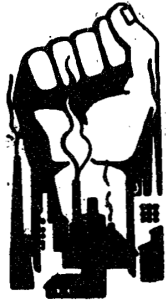The National Caucus of Labor Committees (NCLC) is a political organization in the United States founded and controlled by political activist Lyndon LaRouche until his 2019 death, who sometimes described it as a "philosophical association".

The U.S. Labor Party (USLP) was a political party formed in 1973 by the National Caucus of Labor Committees (NCLC). It served as a vehicle for Lyndon LaRouche to run for President of the United States in 1976, but it also sponsored many candidates for local offices and Congressional and Senate seats between 1972 and 1979. After that the political arm of the NCLC was the National Democratic Policy Committee. The party was the subject of a number of controversies and lawsuits during its short existence.
Same-sex marriage is legal in the U.S. state of California, and first became so on June 16, 2008, when the state began issuing marriage licenses to same-sex couples as the result of the Supreme Court of California ruling in In re Marriage Cases, which found that barring same-sex couples from marriage violated the state's Constitution. The issuance of those licenses was halted during the period of November 5, 2008 through June 27, 2013 due to the passage of Proposition 8—a state constitutional amendment barring same-sex marriages. The granting of same-sex marriages recommenced following the United States Supreme Court decision in Hollingsworth v. Perry, which restored the effect of a federal district court ruling that overturned Proposition 8 as unconstitutional.

California Proposition 14 was a November 1964 ballot proposition that amended the California state constitution, nullifying the Rumford Fair Housing Act. Proposition 14 was declared unconstitutional by the California Supreme Court in 1966. The decision of the California Supreme Court was affirmed by the U.S. Supreme Court in 1967 in Reitman v. Mulkey.

Proposition 4, or the Abortion Waiting Period and Parental Notification Initiative, also known to its supporters as Sarah's Law, was an initiative state constitutional amendment on the 2008 California General Election ballot

Proposition 8, known informally as Prop 8, was a California ballot proposition and a state constitutional amendment passed in the November 2008 California state elections. The proposition was created by opponents of same-sex marriage in advance of the California Supreme Court's May 2008 appeal ruling, In re Marriage Cases, which followed the short-lived 2004 same-sex weddings controversy and found the previous ban on same-sex marriage unconstitutional. Proposition 8 was ultimately ruled unconstitutional by a federal court in 2010, although the court decision did not go into effect until June 26, 2013, following the conclusion of proponents' appeals.

California Proposition 5, or the Nonviolent Offender Rehabilitation Act was an initiated state statute that appeared as a ballot measure on the November 2008 ballot in California. It was disapproved by voters on November 4 of that year.

Proposition 11 of 2008 was a law enacted by California voters that placed the power to draw electoral boundaries for State Assembly and State Senate districts in a Citizens Redistricting Commission, as opposed to the State Legislature. To do this the Act amended both the Constitution of California and the Government Code. The law was proposed by means of the initiative process and was put to voters as part of the November 4, 2008 state elections. In 2010, voters passed Proposition 20 which extended the Citizen Redistricting Commission's power to draw electoral boundaries to include U.S. House seats as well.

California Proposition 7, would have required California utilities to procure half of their power from renewable resources by 2025. In order to make that goal, levels of production of solar, wind and other renewable energy resources would more than quadruple from their current output of 10.9%. It would also require California utilities to increase their purchase of electricity generated from renewable resources by 2% annually to meet Renewable Portfolio Standard (RPS) requirements of 40% in 2020 and 50% in 2025. Current law AB32 requires an RPS of 20% by 2010.

California Proposition 10, also known as the California Alternative Fuels Initiative, was an unsuccessful initiated state statute that appeared on the November 2008 ballot in California. Proposition 10 was funded byClean Energy Fuels Corp. a corporation owned by T. Boone Pickens. Clean Energy Fuels Corp. is the nation's leading operator of natural gas vehicle fueling stations.

Proposition 23 was a California ballot proposition that was on the November 2, 2010 California statewide ballot. It was defeated by California voters during the statewide election by a 23% margin. If passed, it would have suspended AB 32, a law enacted in 2006, legally referred to its long name, the Global Warming Solutions Act of 2006. Sponsors of the initiative referred to their measure as the California Jobs Initiative while opponents called it the Dirty Energy Prop.

A California Congressional Redistricting Initiative, Proposition 20 was on the November 2, 2010 ballot in California. It was approved by 61.2% of voters. Election officials announced on May 5 that the proposition had collected sufficient signatures to qualify for the ballot. The measure is known by its supporters as the VOTERS FIRST Act for Congress.

California Proposition 19 was a ballot initiative on the November 2, 2010 statewide ballot. It was defeated, with 53.5% of California voters voting "No" and 46.5% voting "Yes." If passed, it would have legalized various marijuana-related activities, allowed local governments to regulate these activities, permitted local governments to impose and collect marijuana-related fees and taxes, and authorized various criminal and civil penalties. In March 2010, it qualified to be on the November statewide ballot. The proposition required a simple majority in order to pass, and would have taken effect the day after the election. Yes on 19 was the official advocacy group for the initiative and California Public Safety Institute: No On Proposition 19 was the official opposition group.

Proposition 39 is a ballot initiative in the state of California that modifies the way out-of-state corporations calculate their income tax burdens. The proposition was approved by voters in the November 6 general election, with 61.1% voting in favor of it.

The Adult Use of Marijuana Act (AUMA) was a 2016 voter initiative to legalize cannabis in California. The full name is the Control, Regulate and Tax Adult Use of Marijuana Act. The initiative passed with 57% voter approval and became law on November 9, 2016, leading to recreational cannabis sales in California by January 2018.

Proposition 53 was a California ballot proposition on the November 8, 2016 ballot. It would have required voter approval for issuing revenue bonds exceeding $2 billion.

Proposition 60 was a California ballot proposition on the November 8, 2016 ballot which would have allowed the California Occupational Safety and Health Administration (Cal/OSHA) to prosecute an enforcement action anytime a condom is not visible in a pornographic film. The proposition failed to pass.

Proposition 62 was a California ballot proposition on the November 8, 2016, ballot that would have repealed the death penalty and replaced it with life imprisonment and forced labor without possibility of parole. It would have applied retroactively to existing death sentences and increased the portion of life inmates' wages that may be applied to victim restitution.

California Proposition 6 was a measure that was submitted to California voters as part of the November 2018 election. The ballot measure proposed a repeal of the Road Repair and Accountability Act, which is also known as Senate Bill 1. The measure failed with about 57% of the voters against and 43% in favor.



















